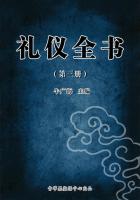He set in order many proverbs.
It is London in October--two months further on in the story.
Bedes Inn has this peculiarity,that it faces,receives from,and discharges into a bustling thoroughfare speaking only of wealth and respectability,whilst its postern abuts on as crowded and poverty-stricken a network of alleys as are to be found anywhere in the metropolis.The moral consequences are,first,that those who occupy chambers in the Inn may see a great deal of shirtless humanitys habits and enjoyments without doing more than look down from a back window;and second they may hear wholesome though unpleasant social reminders through the medium of a harsh voice,an unequal footstep,the echo of a blow or a fall,which originates in the person of some drunkard or wife-beater,as he crosses and interferes with the quiet of the square.Characters of this kind frequently pass through the Inn from a little foxhole of an alley at the back,but they never loiter there.
It is hardly necessary to state that all the sights and movements proper to the Inn are most orderly.On the fine October evening on which we follow Stephen Smith to this place,a placid porter is sitting on a stool under a sycamore-tree in the midst,with a little cane in his hand.We notice the thick coat of soot upon the branches,hanging underneath them in flakes,as in a chimney.
The blackness of these boughs does not at present improve the tree--nearly forsaken by its leaves as it is--but in the spring their green fresh beauty is made doubly beautiful by the contrast.
Within the railings is a flower-garden of respectable dahlias and chrysanthemums,where a man is sweeping the leaves from the grass.
Stephen selects a doorway,and ascends an old though wide wooden staircase,with moulded balusters and handrail,which in a country manor-house would be considered a noteworthy specimen of Renaissance workmanship.He reaches a door on the first floor,over which is painted,in black letters,Mr.Henry Knight--Barrister-at-lawbeing understood but not expressed.The wall is thick,and there is a door at its outer and inner face.The outer one happens to be ajar:Stephen goes to the other,and taps.
Come in!from distant penetralia.
First was a small anteroom,divided from the inner apartment by a wainscoted archway two or three yards wide.Across this archway hung a pair of dark-green curtains,****** a mystery of all within the arch except the spasmodic scratching of a quill pen.Here was grouped a chaotic assemblage of articles--mainly old framed prints and paintings--leaning edgewise against the wall,like roofing slates in a builders yard.All the books visible here were folios too big to be stolen--some lying on a heavy oak table in one corner,some on the floor among the pictures,the whole intermingled with old coats,hats,umbrellas,and walking-sticks.
Stephen pushed aside the curtain,and before him sat a man writing away as if his life depended upon it--which it did.
A man of thirty in a speckled coat,with dark brown hair,curly beard,and crisp moustache:the latter running into the beard on each side of the mouth,and,as usual,hiding the real expression of that organ under a chronic aspect of impassivity.
Ah,my dear fellow,I knew twas you,said Knight,looking up with a smile,and holding out his hand.
Knights mouth and eyes came to view now.Both features were good,and had the peculiarity of appearing younger and fresher than the brow and face they belonged to,which were getting sicklied oer by the unmistakable pale cast.The mouth had not quite relinquished rotundity of curve for the firm angularities of middle life;and the eyes,though keen,permeated rather than penetrated:what they had lost of their boy-time brightness by a dozen years of hard reading lending a quietness to their gaze which suited them well.
A lady would have said there was a smell of tobacco in the room:a man that there was not.
Knight did not rise.He looked at a timepiece on the mantelshelf,then turned again to his letters,pointing to a chair.
Well,I am glad you have come.I only returned to town yesterday;now,dont speak,Stephen,for ten minutes;I have just that time to the late post.At the eleventh minute,Im your man.
Stephen sat down as if this kind of reception was by no means new,and away went Knights pen,beating up and down like a ship in a storm.
Cicero called the library the soul of the house;here the house was all soul.Portions of the floor,and half the wall-space,were taken up by book-shelves ordinary and extraordinary;the remaining parts,together with brackets,side-tables,&c.,being occupied by casts,statuettes,medallions,and plaques of various deions,picked up by the owner in his wanderings through France and Italy.
One stream only of evening sunlight came into the room from a window quite in the corner,overlooking a court.An aquarium stood in the window.It was a dull parallelopipedon enough for living creatures at most hours of the day;but for a few minutes in the evening,as now,an errant,kindly ray lighted up and warmed the little world therein,when the many-coloured zoophytes opened and put forth their arms,the weeds acquired a rich transparency,the shells gleamed of a more golden yellow,and the timid community expressed gladness more plainly than in words.
Within the prescribed ten minutes Knight flung down his pen,rang for the boy to take the letters to the post,and at the closing of the door exclaimed,There;thank God,thats done.Now,Stephen,pull your chair round,and tell me what you have been doing all this time.Have you kept up your Greek?
No.
Hows that?
I havent enough spare time.
Thats nonsense.
Well,I have done a great many things,if not that.And I have done one extraordinary thing.
Knight turned full upon Stephen.Ah-ha!Now,then,let me look into your face,put two and two together,and make a shrewd guess.
Stephen changed to a redder colour.















